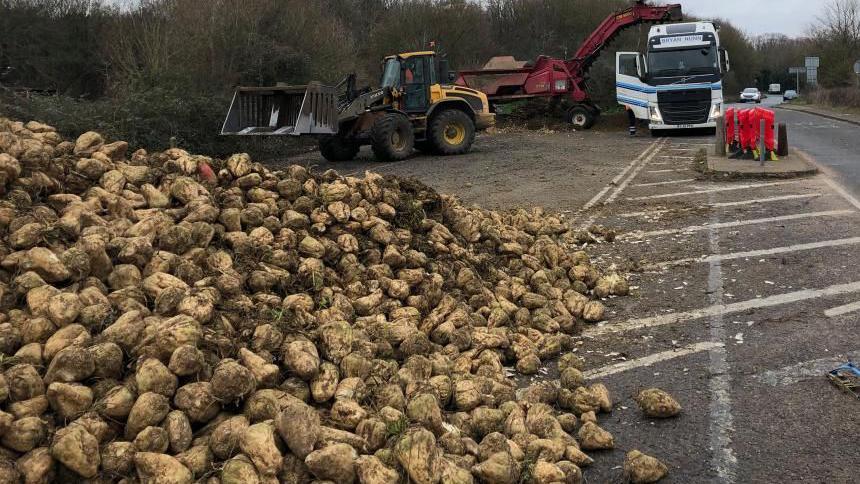Farmer to quit sugar beet to avoid losses
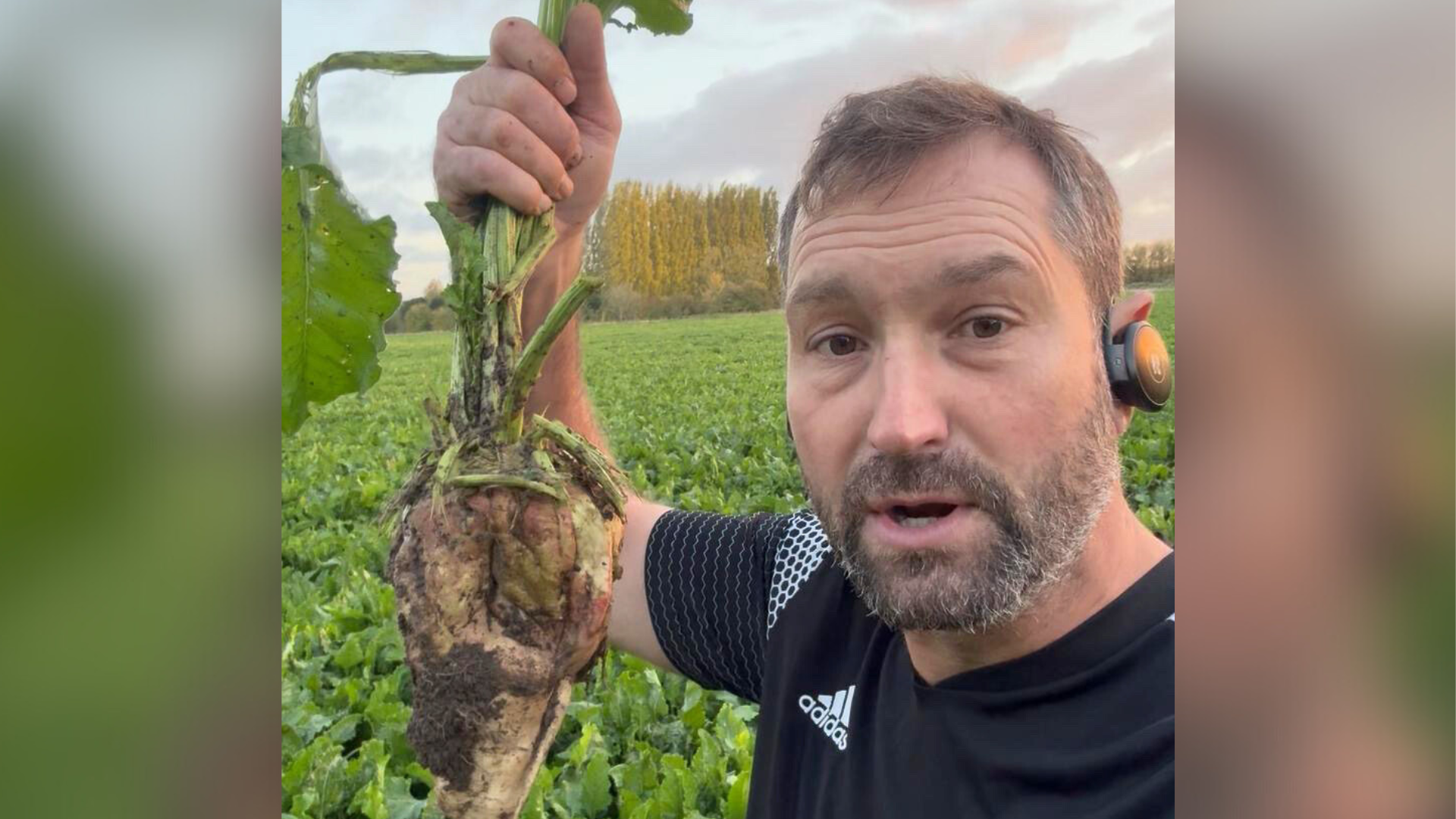
David Wheatley, a tenant farmer, says he would earn more by leaving his field empty
- Published
A farmer says he will stop growing sugar beet after 25 years due to declining profits, complex contracts and increasingly unpredictable weather.
David Wheatley, 47, who farms near Wisbech St Mary, Cambridgeshire, said he had "lost all control" over what he earnt from the crop, which is sold to British Sugar, the UK's sole processor of sugar beet.
Mr Wheatley said he had been slowly earning less money from farming and would "definitely" lose money on sugar beet this year, with next year "looking even worse."
British Sugar said it always aimed to pay "a fair, market-related price".
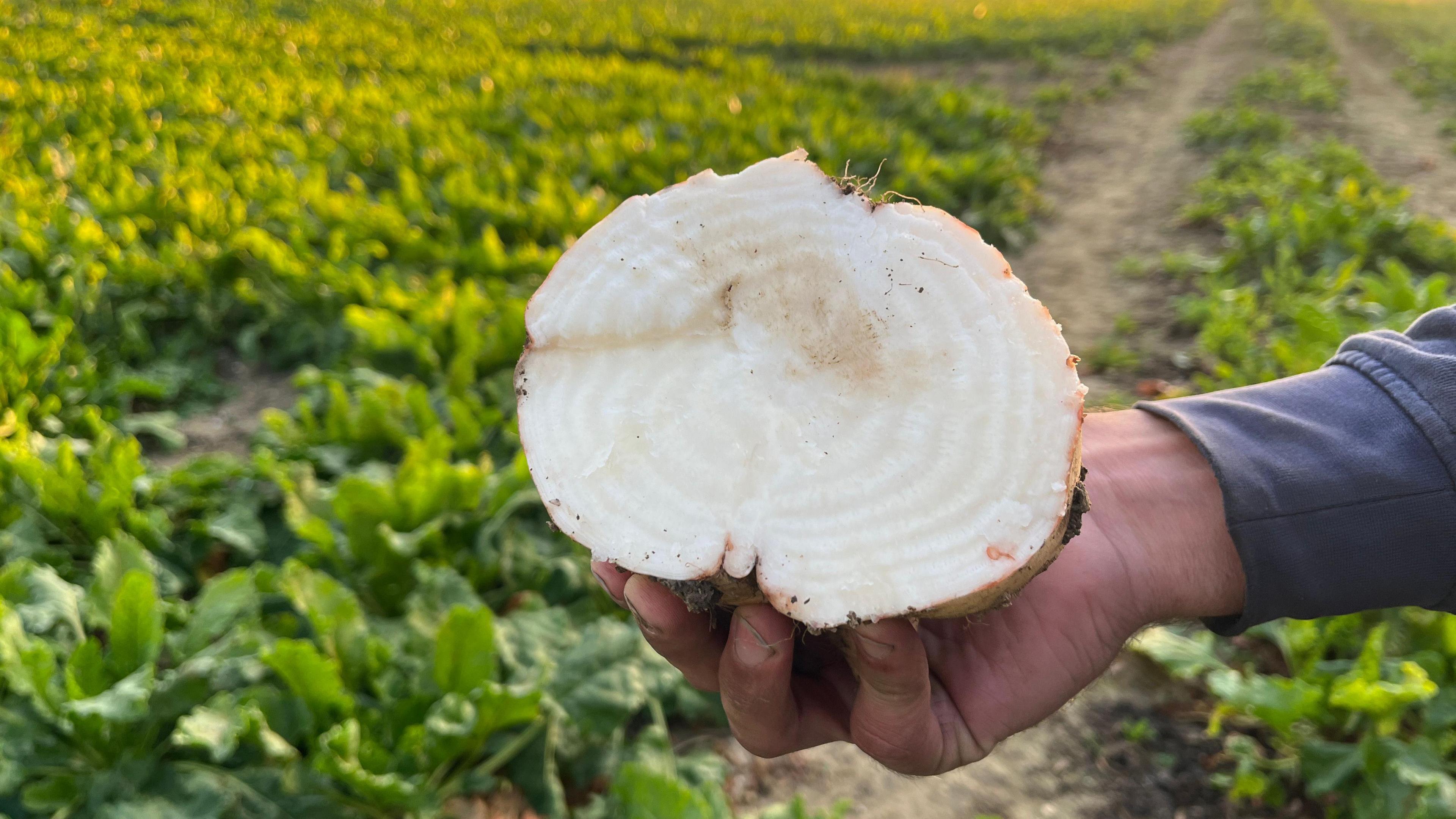
Sugar beet is harvested in autumn and winter and taken to plants in Bury St Edmunds, Suffolk; Cantley and Wissington, Norfolk; and Newark, Nottinghamshire, to be processed
The company sets prices annually and requires growers to sign contracts in advance.
If a crop fails to meet the contracted volume, often due to poor yields, growers may miss out on higher prices or bonuses.
Mr Wheatley added that some pricing structures with British Sugar, external made the system feel like "gambling."
UK sugar beet prices are also influenced by global sugar markets, particularly cheaper sugar cane from countries such as Brazil.
Mr Wheatley said this made it difficult for UK farmers to compete, especially when unpredictable weather and crop disease reduced yields.
He added that the banning of neonicotinoid, external seed treatments had left crops vulnerable to virus yellows, a disease that can significantly reduce sugar content and is often only visible at harvest.
Mr Wheatley has diversified his farm income, carrying out tree surgery and selling produce such as peonies and Christmas trees online.
He said other core crops also struggled financially.
"If we cut everything that didn't make money, we couldn't grow anything," Mr Wheatley said.
"We're dictated to by big companies making massive profits off the back of it.
"We live on an island. If we lose our ability to produce our own food, then you're going to be at the mercy to other countries when there's a shortfall."
A British Sugar spokesperson said: "This year has demonstrated how resilient sugar beet can be, as even in drought conditions, early indications for the season look promising.
"Average margins for growing sugar beet are competitive when compared with alternative break crops, and yields and cost of production varies from farm to farm.
"We always aim to pay a fair, market-related price."
The spokesperson said the ohe offer for next year's crop reflected "a challenging market" and included a range of options "to suit all appetites for risk and reward".
They added: "As with all crops, prices go up and down. The reduction in beet price reflects the fall in European sugar prices, but the crop still has a wide range of benefits."
Get in touch
Do you have a story suggestion for Cambridgeshire?
Follow Cambridgeshire news on BBC Sounds, Facebook, external, Instagram, external and X, external.
Related topics
More related stories
- Published30 May
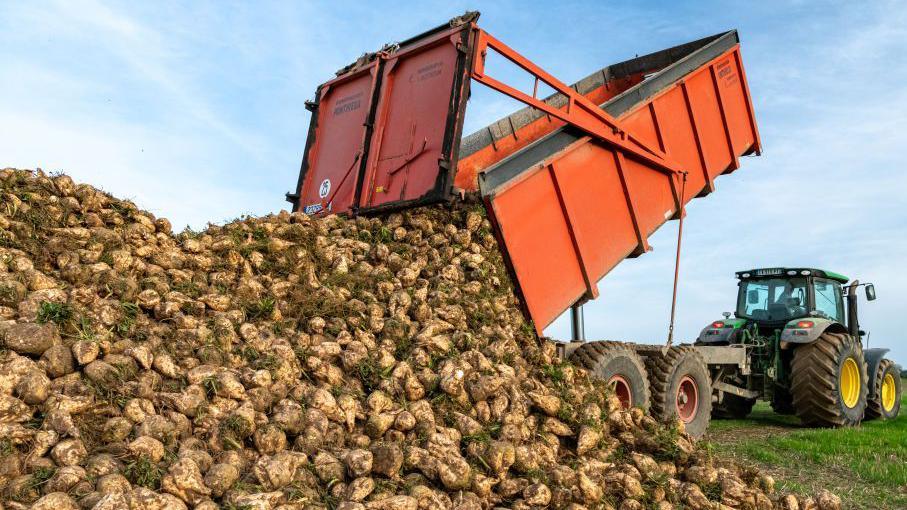
- Published11 April 2024
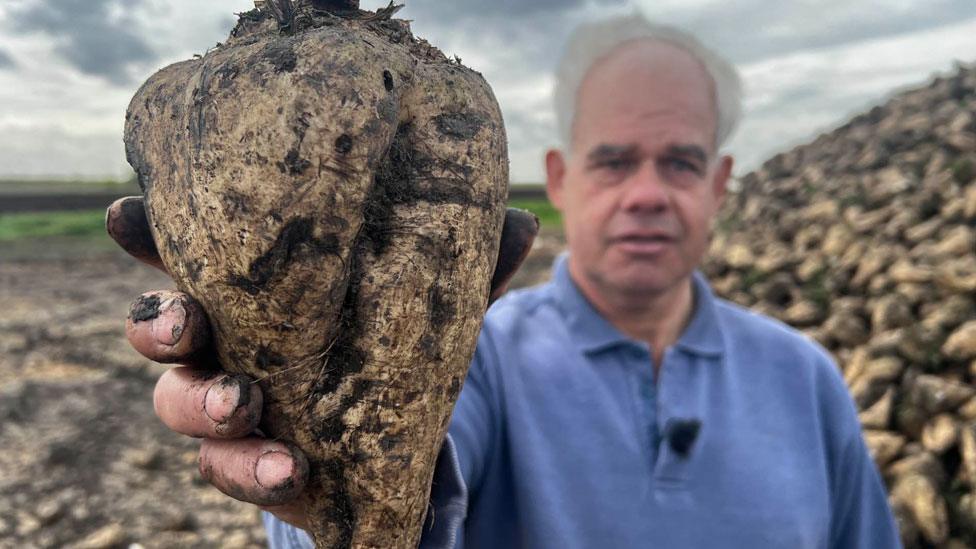
- Published18 January 2024
